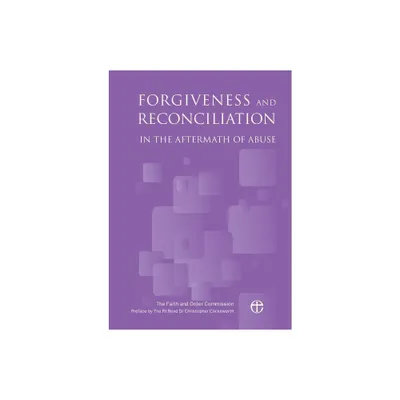Home
Speaking to Reconciliation: Voices of Faith Addressing Racial and Cultural Divides
Loading Inventory...
Barnes and Noble
Speaking to Reconciliation: Voices of Faith Addressing Racial and Cultural Divides
Current price: $45.05


Barnes and Noble
Speaking to Reconciliation: Voices of Faith Addressing Racial and Cultural Divides
Current price: $45.05
Loading Inventory...
Size: OS
*Product Information may vary - to confirm product availability, pricing, and additional information please contact Barnes and Noble
In North America, Africa, and across the globe, many societies are deeply divided along racial, ethnic, political, or religious lines as a result of violent/oppressive histories. Bridging such divides requires symbolic action that transcends, reframes, redeems, and repairs—often drawing upon resources of faith.
Speaking to Reconciliation
showcases this tradition through speeches by Abraham Lincoln, Martin Luther King Jr., Elie Wiesel, Desmond Tutu, Barack Obama, Thich Nhat Hanh, Jordan’s King Abdullah II, Ireland’s President Mary McAleese, and others. Some of these speeches set forth principles or spiritual practices of reconciliation. Others acknowledge injustice, make apologies for historical wrongs, call for reparations, or commend the power of forgiveness.
presents a conceptual framework for doing analysis and critique of reconciliation discourse and applies this framework in introductions to the speeches, offering readers a springboard for further study and, potentially, inspiration to promote justice and reconciliation in their own spheres.
Speaking to Reconciliation
showcases this tradition through speeches by Abraham Lincoln, Martin Luther King Jr., Elie Wiesel, Desmond Tutu, Barack Obama, Thich Nhat Hanh, Jordan’s King Abdullah II, Ireland’s President Mary McAleese, and others. Some of these speeches set forth principles or spiritual practices of reconciliation. Others acknowledge injustice, make apologies for historical wrongs, call for reparations, or commend the power of forgiveness.
presents a conceptual framework for doing analysis and critique of reconciliation discourse and applies this framework in introductions to the speeches, offering readers a springboard for further study and, potentially, inspiration to promote justice and reconciliation in their own spheres.


















